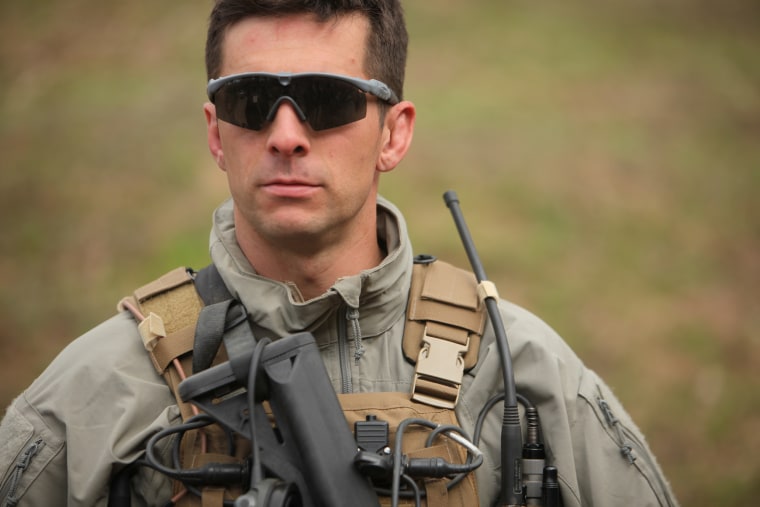In an instant, Derek Herrera knew it was all over. The bullet entered his shoulder, but it lodged in his spine. That meant several things for the 28-year-old — none of them good.
Immediate paralysis from the chest down. Immediate end of his dream job as an elite Marine Special Operations Team commander. Immediate start of a grueling rehabilitation that would last years.
These days Herrera, now 34, doesn’t spend much time dwelling on the enormity of those losses. He can’t — he’s too busy. He and his wife have twin 2-year-old boys who love to wrestle, climb and speak to each other in their own secret language. He’s also running a small business based around a big idea: that a new kind of catheter could help end the hell of urinating for paralyzed men like himself.
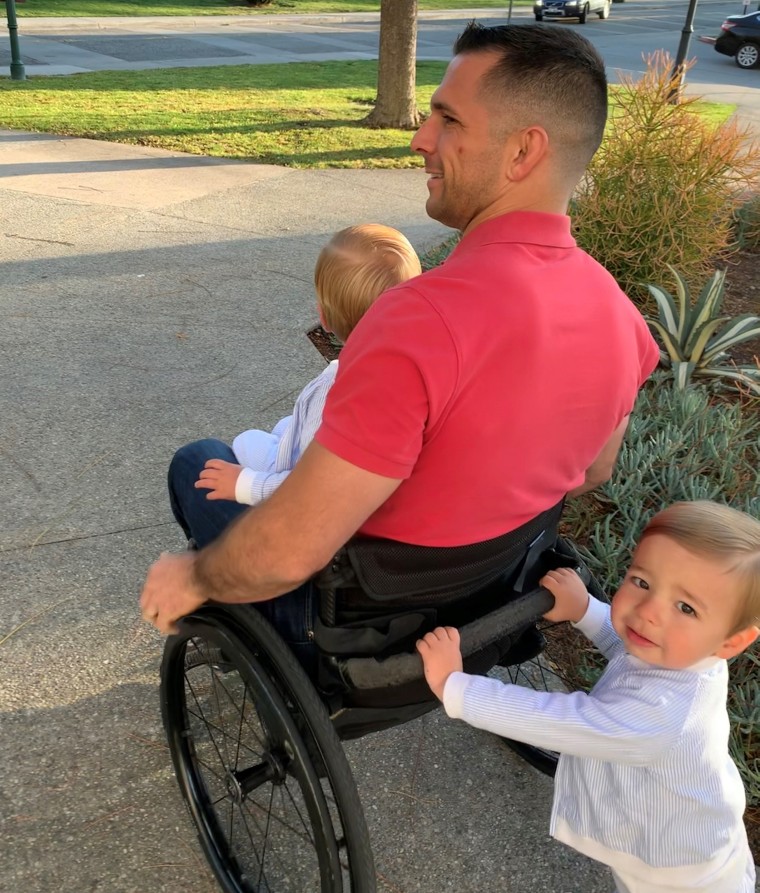
The war in Afghanistan is so old that if it were a human, it would be allowed to vote. Over the past 18 years, more than 53,000 U.S. service members have been wounded in post-9/11 wars. Many post-9/11 veterans say they found it challenging to transition back to civilian life.
For Herrera, the climb back to a new level of normalcy took years of work. He had to keep reminding himself to look forward, not backward.
‘I felt completely fulfilled’
Herrera and his wife were high school sweethearts.
“Since the beginning, Derek has always been a calming force in my life,” said his wife, Maura Herrera, 33. “He’s just a very calm, cool, collected guy.”
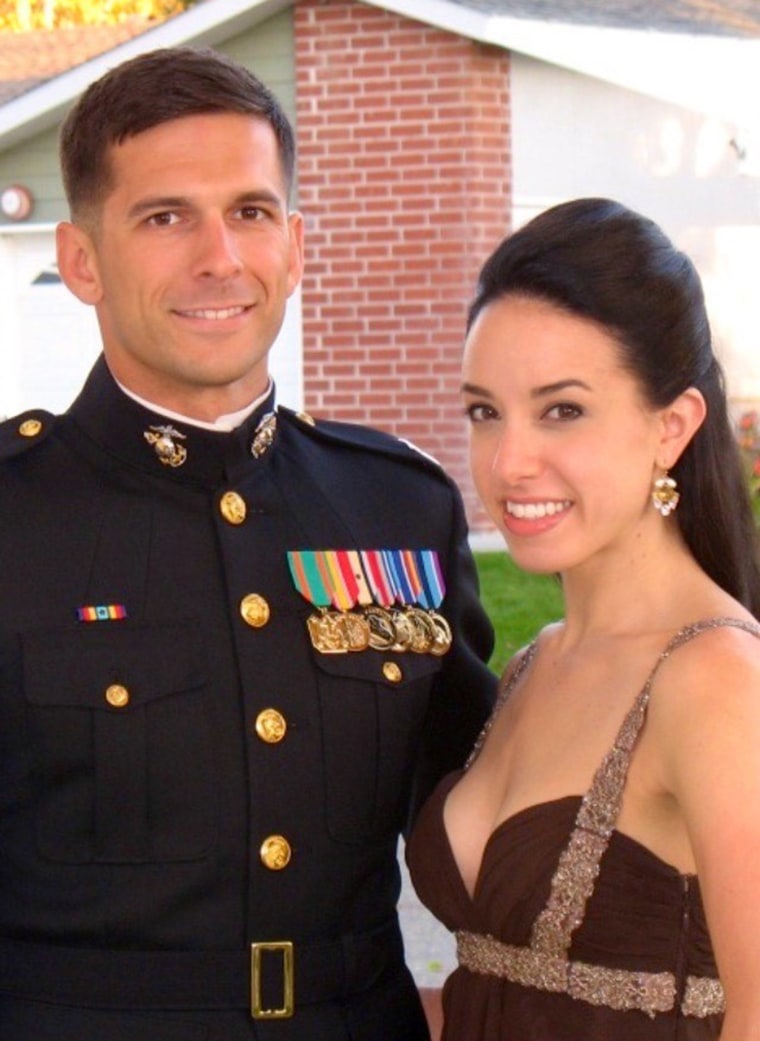
They stayed together through their college years in Maryland, where she studied dance performance at Towson University and he attended the United States Naval Academy. Derek trained in Quantico, Virginia, to be a U.S. Marine Corps infantry officer, then deployed to Iraq in 2008. After years of rigorous training, he attained a major goal in 2011: He became a Marine Special Operations Team commander.
“It’s what I felt like I was meant to be doing with my life,” Herrera said. "I felt completely fulfilled. It was awesome.”
Derek and Maura relocated to Camp Pendleton in California in 2011, and Derek began hand-picking a team of 20 Marines who would deploy to Afghanistan with him.
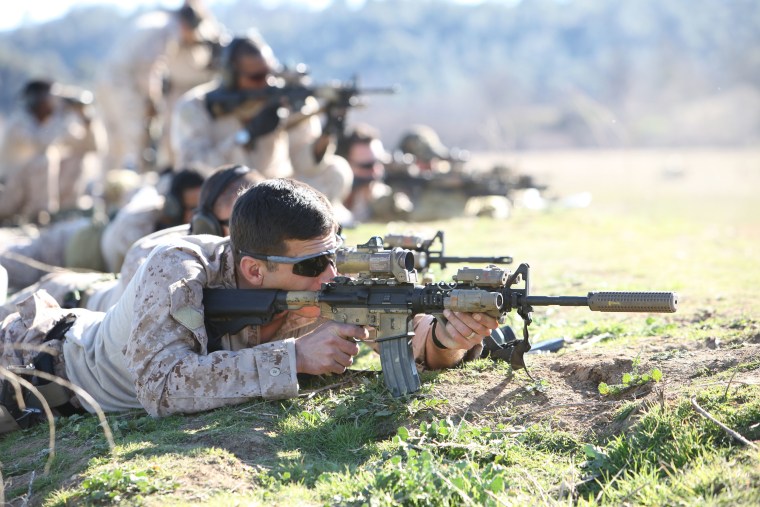
The close-knit group arrived in Afghanistan’s Helmand Province in May 2012. They would have one month there together before everything would change.
‘The best and worst day of my life’
On June 14, 2012, 10 of Herrera’s team members woke up in the middle of the night. They headed out in stealth mode along with 10 Afghan service members so they could set up an ambush position before the sun rose at 4:40 a.m.
After more than two hours of hiking through muddy, wet terrain, they arrived at a compound that an Afghan elder had agreed to let them use.
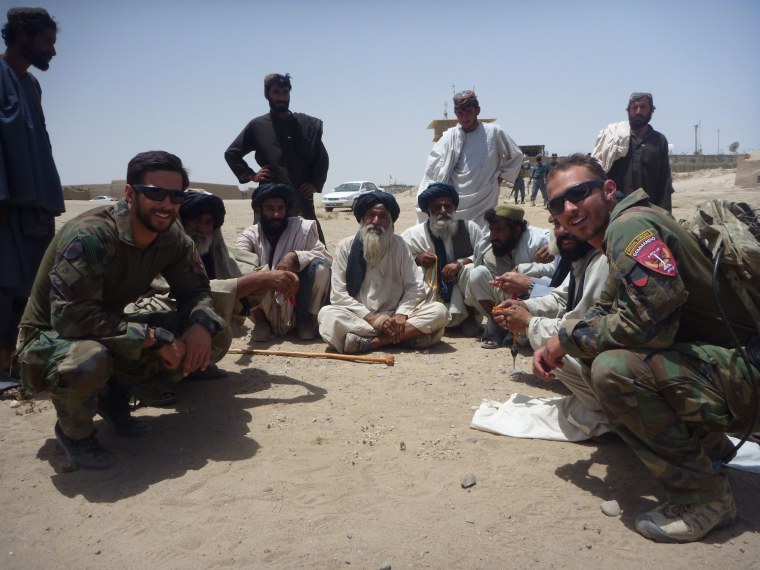
Sergeant Rick Briere was stationed on the roof of the compound. He remembers hearing morning prayers and then he noticed something unusual: a mass exodus of people.
“Women, children, anyone who didn’t want to fight — they were leaving the area,” Briere told TODAY. “I radioed in to Derek ... and he came up to the roof with me. I said, ‘Keep your eyes open.’”
Within the next minute, Herrera and Briere were both shot. Herrera’s bullet paralyzed him instantly when it reached his spine; Briere’s bullet traveled completely through his neck and, somehow, went right between his vertebrae.
“I remember hearing, ‘Oh crap, I think Ricky’s dead!’” Briere said. “I barely cracked my eyes open and there was a pool of blood and it was mine.
“Here’s why I’ll never be able to thank Derek enough. Even though he had been shot, I heard him say, ‘No! Help me keep him alive.’”
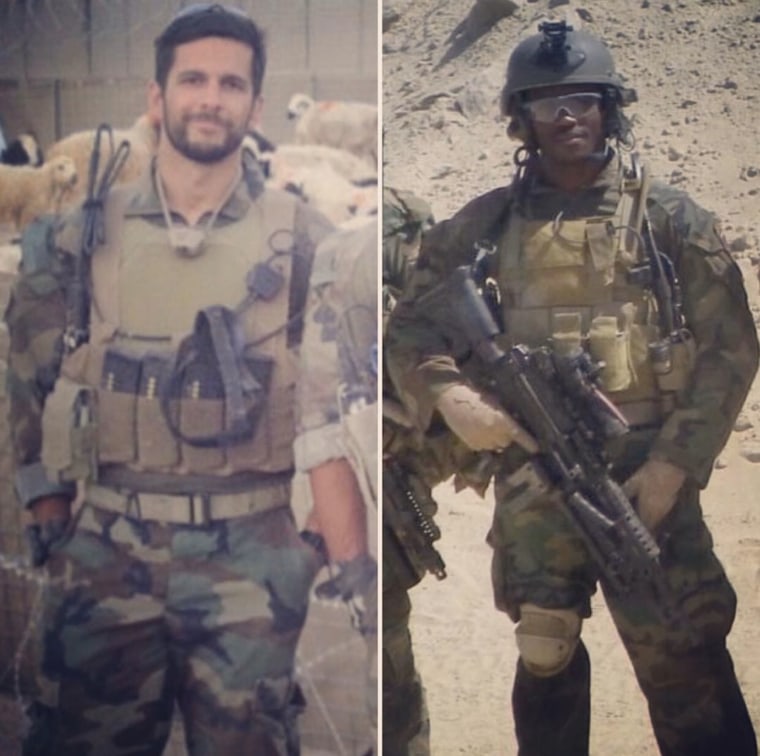
Fellow Marines summoned a medivac helicopter and ran out to it, completely exposed, so they could carry Herrera and Briere’s stretchers to safety.
“It was the best and the worst day of my life,” Herrera said. “As a leader, it was the best day of my life because the team showed the best, the most heroic, actions on the battlefield. I’m still alive because of that, and so is Ricky.
“And, obviously, it was the worst day because so much was taken away.”
‘I likely will never walk again’
Maura Herrera could barely process the news when Derek called her that night. She just remembers that he managed to sound as calm as ever.
“He said, ‘I’ve been shot. I’m coming home. I likely will never walk again. Please call my parents and your parents,’” she recalled.
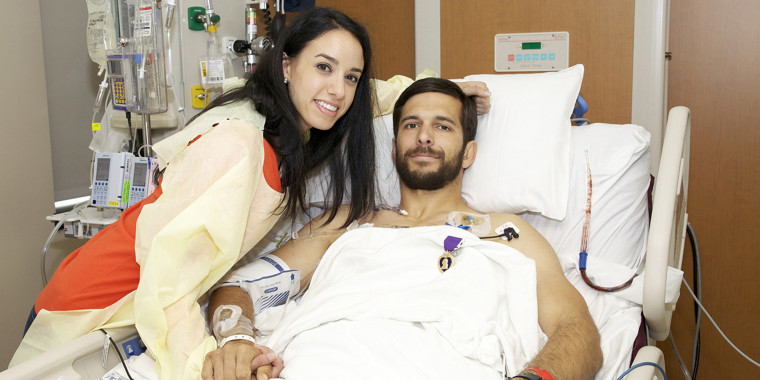
Her husband received a Purple Heart, a Combat Action Ribbon, a Bronze Star — and a profoundly uncertain future.
“The whole thing was a big question mark,” Maura said. “Who was he going to be as a person? Who was I going to be as a caregiver? Who were we going to be as a married couple?”
Herrera put intense pressure on himself to meet or exceed rehab goals quickly — but that wasn’t always possible.
“I don’t want to say he was a difficult patient, but ...” Maura Herrera said with a laugh. “He was a little bit still in Marine mode. He wanted to move fast.”
By January 2013, Herrera was able to return to a desk job at Camp Pendleton. Soon after, he began pursuing an MBA at University of California, Los Angeles.
“When I was in business school, I really started thinking,” Herrera said. “Although there were a lot of things I could do, was there something that ONLY I could do? Something that no one else could do?”
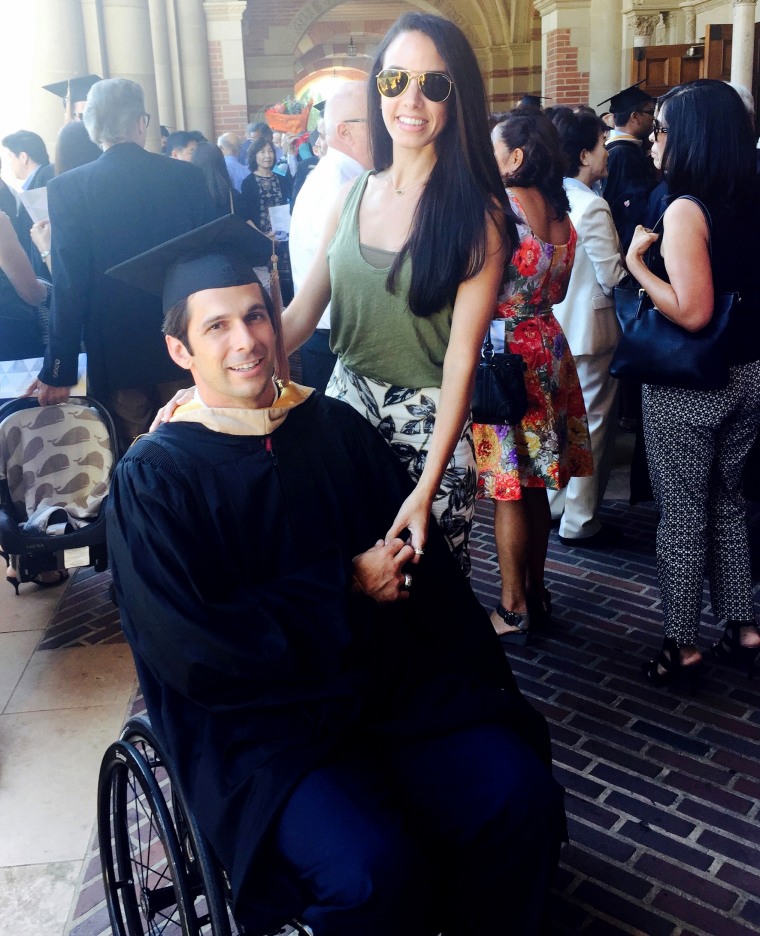
After a spinal-cord injury or disease leaves someone unable to sense the need to urinate, the once-simple act of going to the bathroom becomes a nightmare. Men must insert a plastic tube into their penises six to eight times a day — an average of 50 times a week — in order to drain their bladders.
“The reality is I can get around pretty much anywhere I want in a wheelchair, but I’m still using this archaic, medieval device to empty my bladder,” Herrera said.
A jolt of inspiration came to him: Could he possibly help design a new catheter for paralyzed men? The end result of that idea is a device called the Connected Catheter, which is patented and in clinical studies across the country. Men can wear the fully internal device for up to a week, and it discreetly lets them know when it’s time for them to empty their bladders.
Herrera founded Spinal Singularity, a business with six employees in San Clemente, California, after he graduated from business school.
“I really hope this will be transformative for people,” Herrera said.
‘Everything else could all go away’
Herrera’s business started ramping up around the same time he and Maura welcomed their twin boys, Hunter and Hudson, with the help of in vitro fertilization.
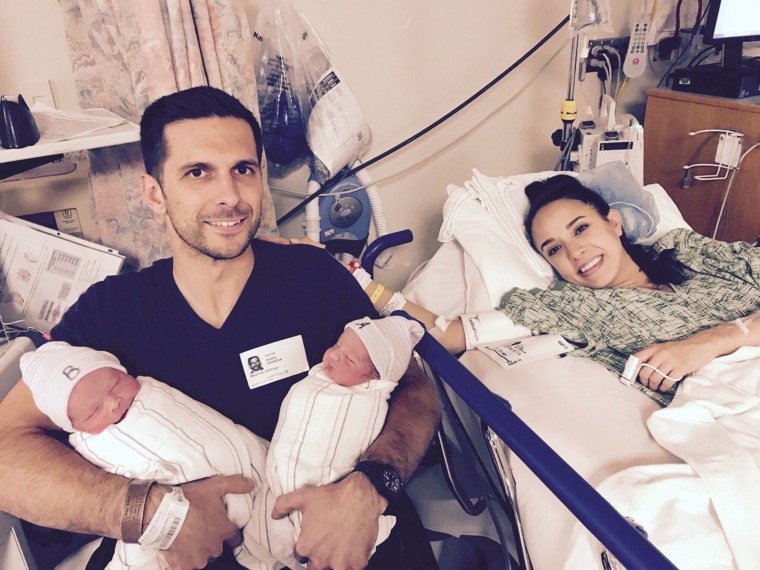
The twins turned 2 in late July. They love trucks, cars and roughhousing, and they make their parents’ hearts explode with gratitude.
“We both look at these boys and there’s just nothing better,” Maura said. “Everything else could all go away.”
Derek cares for the boys by himself while Maura works as a ballet instructor in the evenings. The twins love that their dad has wheels.
“Hudson especially just loves to sit on my lap and cruise around,” Herrera said.
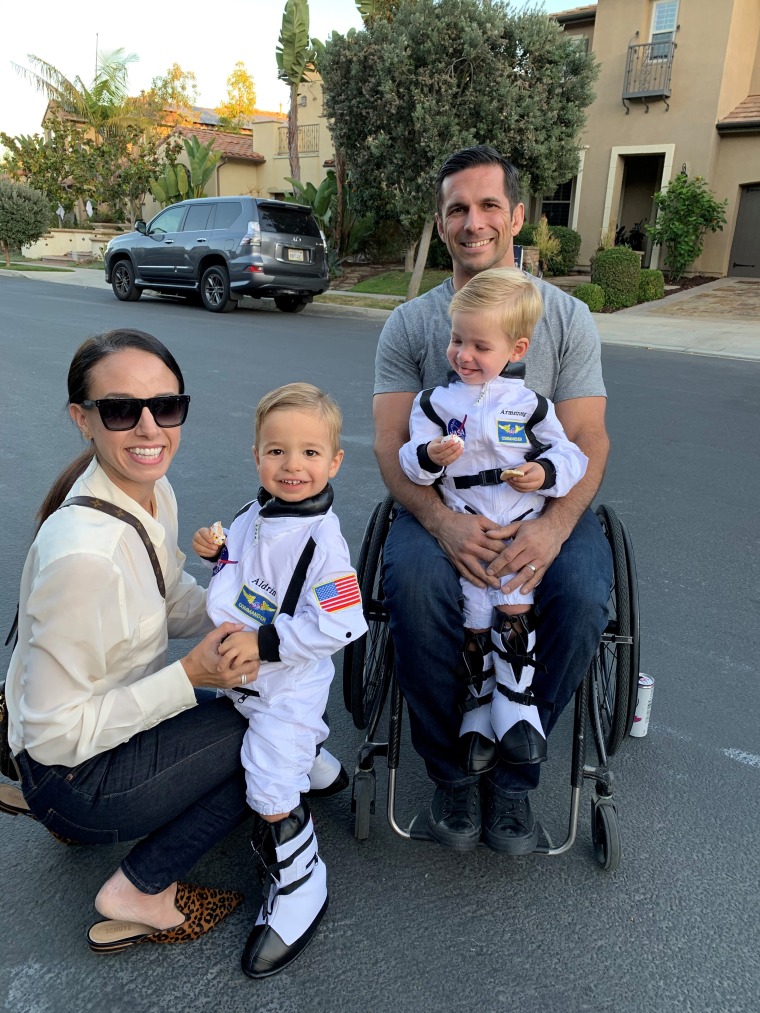
Derek and Maura hope their sons will be more empathetic and compassionate adults after growing up around someone in a wheelchair. Derek often finds himself reflecting on something a close mentor told him when he became a dad.
“He said, ‘I’m so excited for you because your kids will be the first ones to know you the way you are now,’” Derek said. “‘They’re not going to see you any differently. They’re not going to ask you why you don’t walk. They’ll be the first ones to accept you just the way you are.’”
Never miss a parenting story with the TODAY Parenting newsletter! Sign up here.
Related video:
